Fresh Jams
In conversation with Guillermo Maciel and Jodie Emmett
For over 35 years, Beth’s Farm Kitchen has been crafting artisan jams, jellies, and chutneys using local Hudson Valley produce. The company was originally founded in 1981 by Beth Linskey in her Stuyvesant Falls, New York home. Eventually, her jarred goods became a fixture at the Union Square Greenmarket, where they’re still sold today—but Beth is no longer making them. In 2016, She sold the business to husband-and-wife team Guillermo Maciel and Jodie Emmett, who have expanded upon what she built.
Now, Beth’s Farm Kitchen not only produces condiments and preserves under its own label, but also partners with Mast Market. Guillermo and Jodie are now producing our organic jams, salsa, BBQ sauce, apple sauce, ketchup, and mustards in their Old Chatham, New York facility—and we cannot wait for you to taste them. Here, the couple shares why they purchased Beth’s Farm Kitchen and their exciting plans for its future.
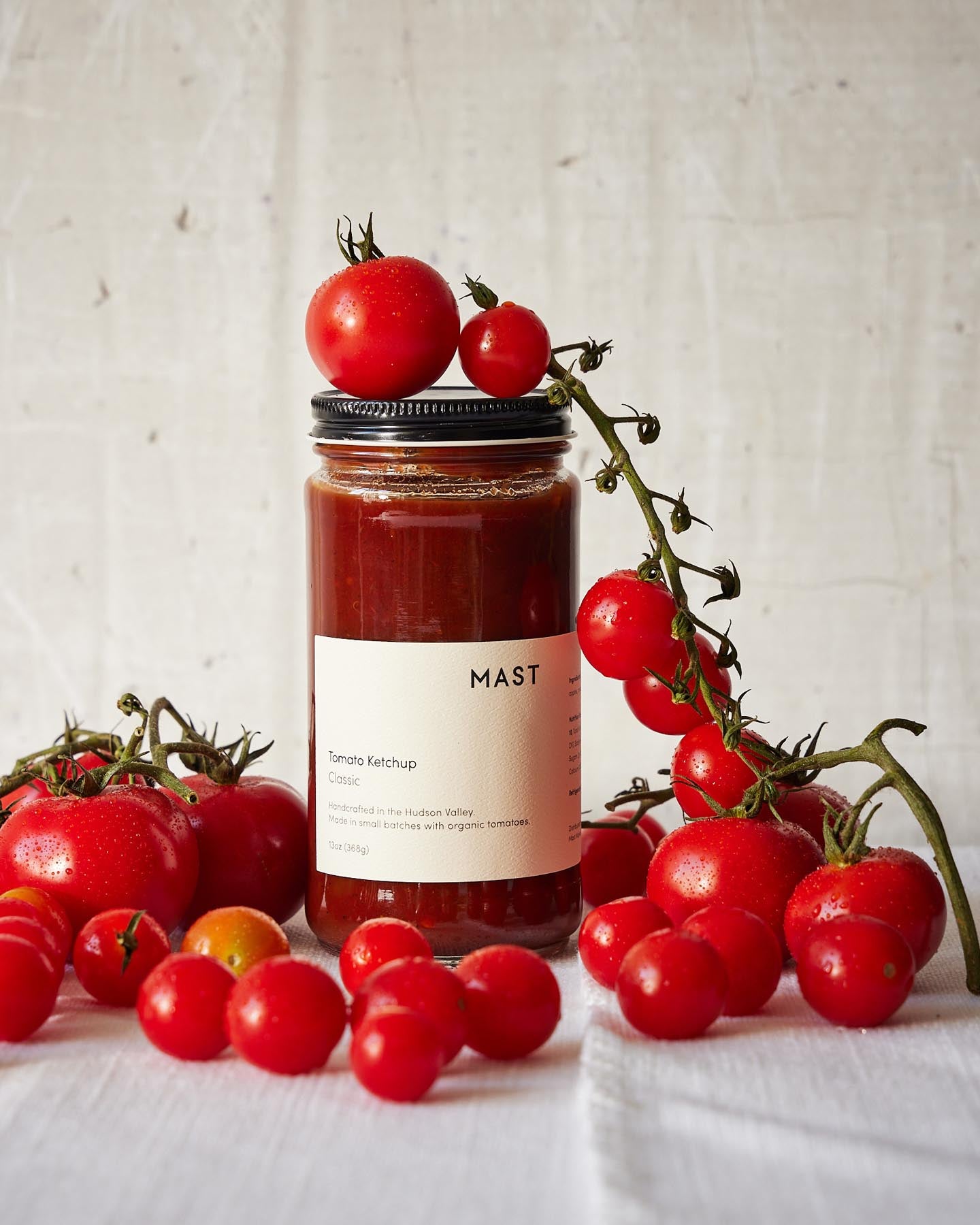
Shop Mast Pantry. Photo by Kate S Jordan
Mast Journal: How did you come to buy Beth’s Farm Kitchen?
Guillermo Maciel: Jodie and I met in New York City in 2002. I was working in government and getting my master’s degree in public policy at the New School, while she was working for a nonprofit called Cross-Cultural Solutions. Jodie is a Midwest farmer's daughter—but it's not her dad. It was her mom who was an orchardist in Michigan, one of the very first women to do it there. And I was just a kid who grew up between San Francisco and Tijuana in Mexico.
We left New York together and ended up in the Pacific Northwest. Jodie got a master’s degree in sustainable business and we cut our teeth on organic farming and community enabled agriculture and trying to grow vegetables for profit. Jodie also worked for a startup that was focused on Oregon seafood and learned a lot about the pitfalls of manufacturing food. We eventually left Portland with the idea of finding our forever farm.
We were looking for a metropolitan statistical area that was 2.5-3 hours away from a major urban center, that had the right kind of ethnic and income diversity, that had a good Latino population to connect with, and all these different criteria. North Chatham ended up winning out.
Part of the goal was to not only grow vegetables, but to have dairy sheep that we would eventually make into a small scale cheese operation. And then right around year six of the 10 year plan, we would start a small added value food business because it's really hard to just sell vegetables and run CSAs.
We said right around year six, we'll start this company that will have added value food products and we'll be one of the clients and hopefully we can add to market share in the place where we live. Well, actually, it all happened at the same time. We ended up doing a partnership with this small dairy and, simultaneously, Beth’s Farm Kitchen came across our desk. She wanted to sell this business. And so we were able to start at the mezzanine level, with street cred, some clients in the city, some established recipes, and an immediate way to start bringing in produce from farms.
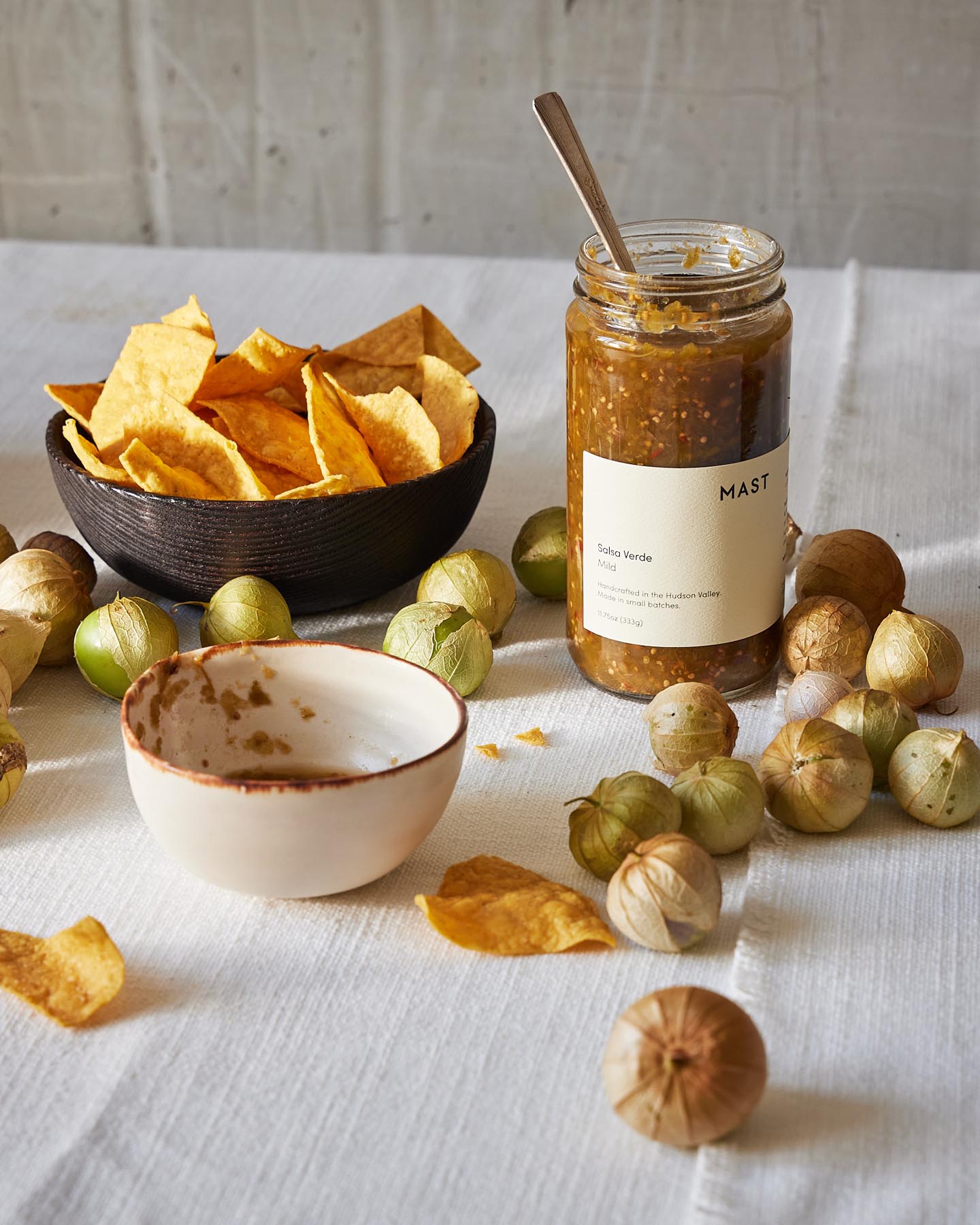
Shop Mast Pantry. Photo by Kate S Jordan
MJ: That’s incredible! And you started creating products for other brands, too?
GM: Yes, Beth did this for five clients. We now have grown it to 45 clients. And this is onboarding season. By the end of the quarter, we'll probably have another four to five clients. One of the things that we do for people is that we develop recipes. You could bring your recipe, your Nonna’s marinara, the secret sauce, and we would sign a confidentiality agreement. And part of your brand is that you want people to think it's the sweet little Italian grandma making it. You don't want people to know it's a Mexican dude and Midwest farmer's daughter that's making it. So we are the holders of the secret. And that's just manufacturing, right?
MJ: Totally. Whereas, at Mast Market, we want to highlight our production partners. Is most of your work Beth’s Farm Kitchen products or other brands’ products?
GM: It's about half and half, from a financial perspective.
MJ: And what are your and Jodie’s jobs like?
GM: In the past seven years, there were times where it was me in the kitchen, just making everything. I then hired a prep person and we built their skill set up to take over the chef role. At this point, as of this last year, all the time that I once spent in the kitchen is now spent on managing the production floor and the staff or developing new recipes for clients or for BFK. I’m not so much having to do production anymore. We've been very fortunate that way. It has allowed us to focus more on the client management and sales and things of that nature. Jodie's the CFO. She's handling all the financials, she's handling all the sourcing, making sure we're in compliance. But when I have to do sales, she's managing the production floor. We're just trading roles as we go.
MJ: Amazing. Can you share a little more about the products you make?
GM: We make almost anything that's shelf-stable in a jar. So from hot sauces to chutneys to condiments, like ketchup and mustards, relishes to pickled fruits and vegetables, and of course, jams, jellies, and marmalades. Jams, jellies, and marmalades are the bulk of what we do. We have about over 200 different recipes. For what we’re actively selling on our website, it's about 45 different SKUs, but we have over 200 different recipes.
I have a lot of products that I make for private labels that we never see a BFK label on. I have five-star restaurants that sometimes use our chutney and we sell it in food service containers. We work with bakeries, providing donut fillings, and ice cream makers, providing ice cream fillings. So we have everything from two gallon to five gallon containers for that kind of thing. It's not just a jarred product, but it's also a food service product that can be sold. We try to just keep running as much produce through this place as possible for processing and then for added value. And the hope is to one day get into fermented products.
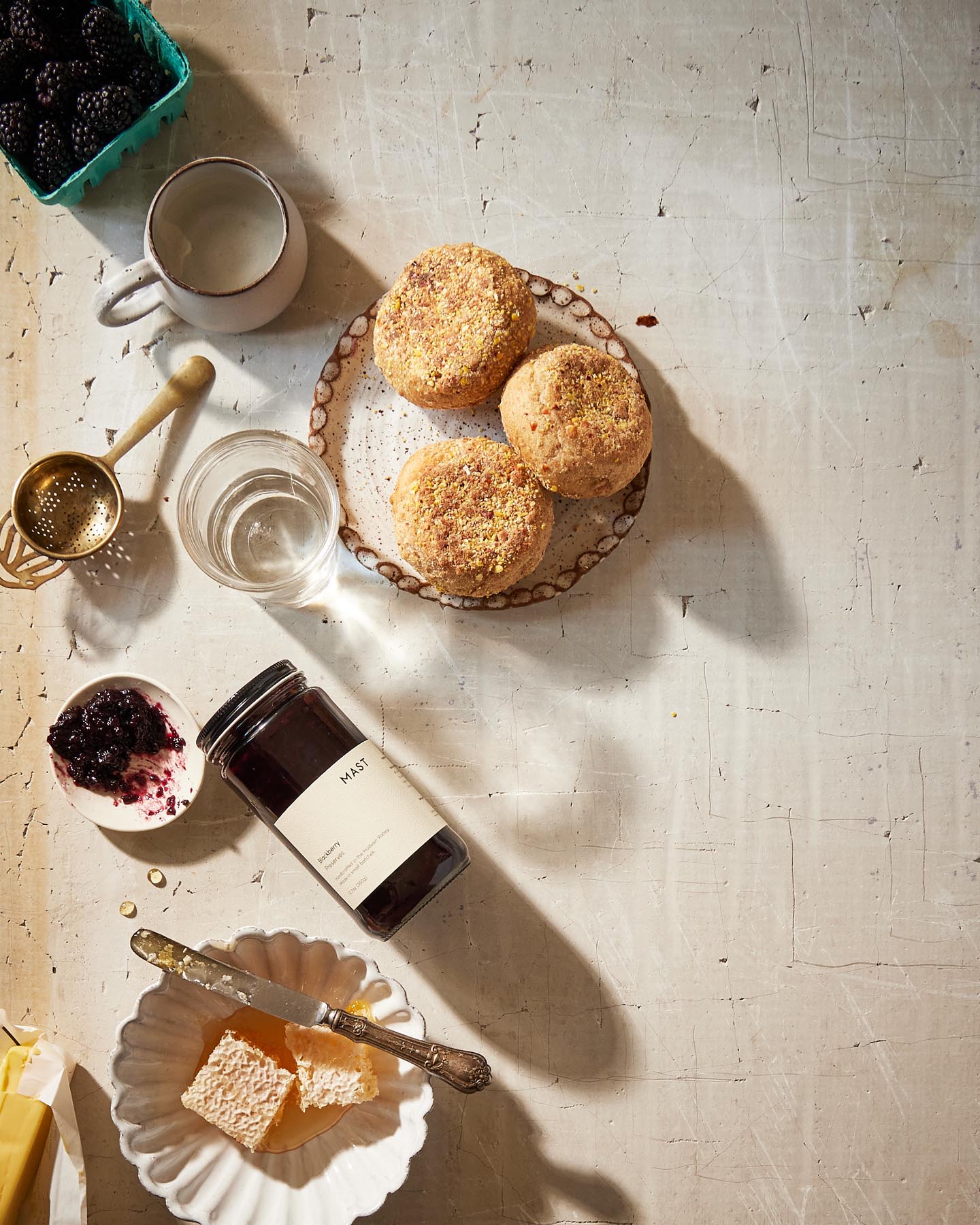
Shop Mast Pantry. Photo by Kate S Jordan
MJ: Are you only using produce from your farm or from many farms?
GM: Many farms. We have been growing mostly chili peppers and some other specialty ingredients and herbs. Hopefully this year we will bring even more produce into the facility from our farm. But we are working with a lot of local farmers in the Hudson Valley, in the Finger Lakes area for a lot of our stone fruit. We work with farms pretty much throughout the state of New York, but also as far as New Jersey and Maine. We work with some growers in Connecticut for cranberries. We're always constantly trying to create new relationships. We want to float as many boats as possible.
The goal is just to keep the volume increasing and keep aggregating resources so that we're able to offer the best price to farmers and then to our small entrepreneurs. We give them the best price without ever screwing a farmer over. And then they're able to tell that story. They can say, ‘Yes, I could have gone to the global market for my fruits and vegetables, but instead I'm working with Beth’s Farm Kitchen and the folks in the Hudson Valley to make my brand more local driven.’ That's the hope.
MJ: Definitely. Mast Market is on that same page. We care about organic, local, and sustainable over everything. And where can shoppers find Beth’s Farm Kitchen products?
GM: The majority of our offerings are online. We do the Union Square Farmers Market on Wednesday, Fridays, and Saturdays, but we cut back in the winter a little bit. We’re currently distributed in all the Whole Foods in the region, but it's a much smaller offering. We have three hot sauces and about five jams that we offer there. Then there are a lot of local stores carrying us, small boutiques throughout New York City and the Hudson Valley. The plan has always been to make it a robust regional brand.
MJ: Awesome. What is your favorite part about your job?
GM: It’s this economic development piece, this community development piece. I left government because it took me three years to get immigration and customs enforcement out of our county jails. It took me three long years to change policy on something that was technically already illegal. And about six months after I was gone, that policy changed again. I was constantly looking at how we could develop community, create economic development opportunities, and work in social justice. And I felt that agriculture could be a place for that for many reasons.
It's a place where you have immigrant populations that come and can thrive, but don't always. And so the ability to run a co-manufacturing facility that creates as many of these better-than-living-wage jobs as possible and create ladders of growth for people on an individual level is incredible. They can go home and feel proud of what they're doing for their families and can take pride in the fact that they are part of this food system. Without them, farmers wouldn't have a place to have this happen. So I see it from that manufacturing side, but I also see it from the farming side.
I want farmers to win. I want farmers to win every day. And it's hard to win as a farmer. So my hope is that we can put up a good fight against larger economies of scale and larger powers that be and hopefully just make it so that people can grow good food and feed people and be able to feed their own people by doing it. So that's what I care about.
MJ: That’s super important. What about you, Jodie?
Jodie Emmett: I like working with the farmers a lot, especially when we're creating projects. A lot of what we do is help small emerging food brands get to the next level. And that's really fun for me, too. I meet a lot of really fascinating people who are extremely passionate about food. I've been on the other side of this, in a company that was looking at co-packing, and I understand how challenging it is to get somebody to care about your products as much as you do. And our team really cares. They really care about quality and it really shows. I think we're getting better and better at it. And that feels really great. It’s not a hundred percent perfect all the time, but we're constantly striving and that feels really good. I think that's my favorite part. And I get to work in this beautiful place with my husband, so that's nice.
MJ: It sounds ideal.
JE: Yeah, it's hard work. I'm not going to lie. It doesn't ever shut off, but that’s the reality of most entrepreneurs, right?
MJ: For sure. What else should Mast Market customers know about Beth’s Farm Kitchen?
JE: I think people don't understand the flexibility and the creativity and the willingness to take on new and exciting projects that we have here. We're trying to grow and we are building more and more of a skillset to develop and design exciting products and jars. The more clients we work with, the more feedback we get, the more we realize that we have something really unique to offer here. And we're always looking for fascinating new projects.
GM: To piggyback on that, I’ll say that we are a niche. You go to a co-manufacturer anywhere in the region and just to get started, you need to order at least a thousand units. And that's a big investment. It requires a lot of cash flow and it’s a risk. You could spend thousands of dollars. Whereas our minimums are like 36 units. The idea is trying to transform the micro client into a small client, small client into a medium client, and so on. And the idea being that because of everything we've done with them, that they stick with us through this, that we grow together. There isn't someone else who's willing to work with and invest in the little guys right now.
More from The Journal
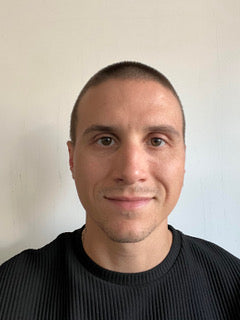
In 1996, David Elwell and Steve Leven opened a coffee shop in Gramercy Park with the goal of creating a warm, friendly gathering place for all types of people. They sought to be the opposite of the...
Read more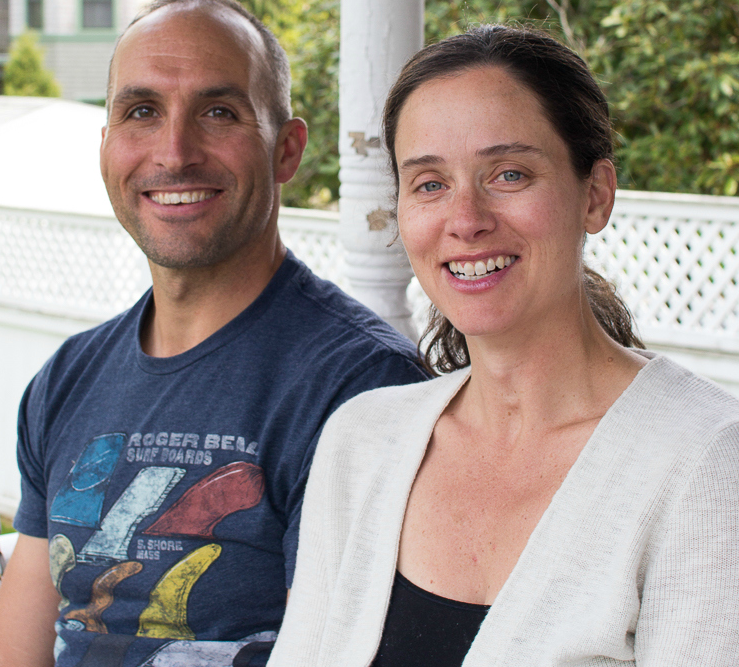
In 2005, Alex officially launched Taza Chocolate with his wife Kathleen Fulton. The duo has been crafting stone-ground chocolate in their Somerville, Massachusetts factory ever since. “We make choc...
Read more